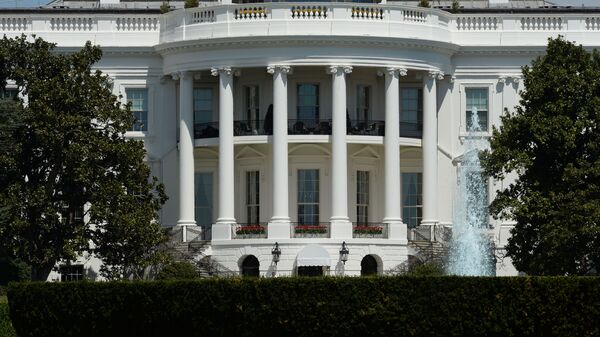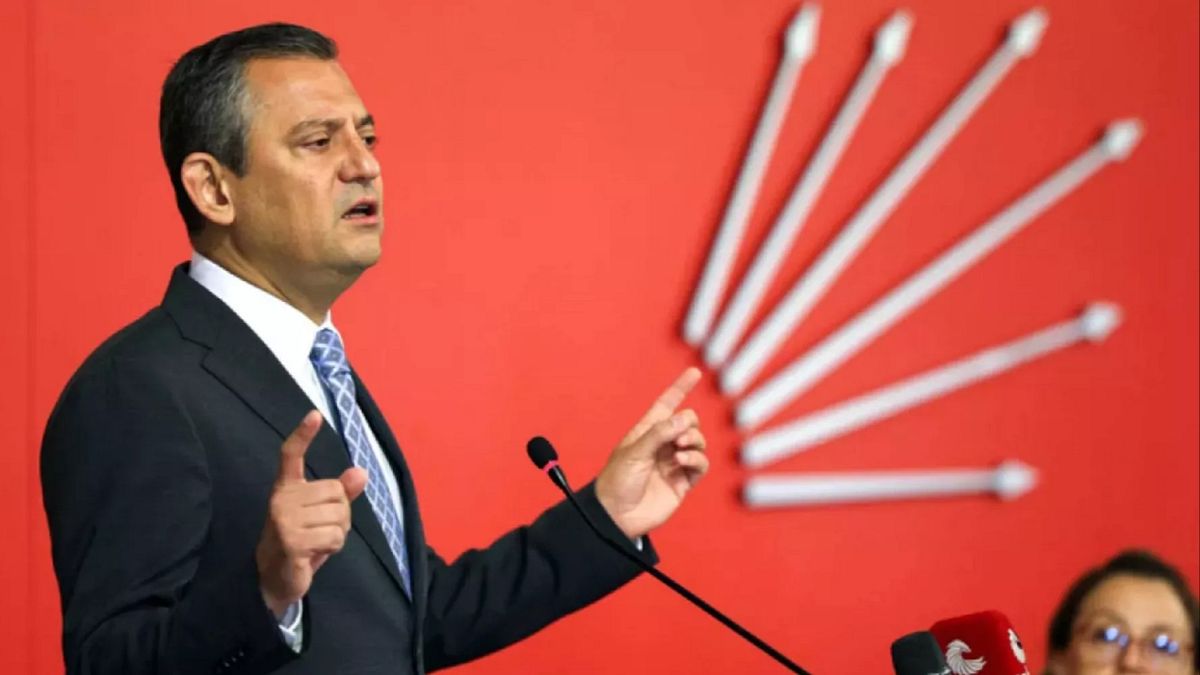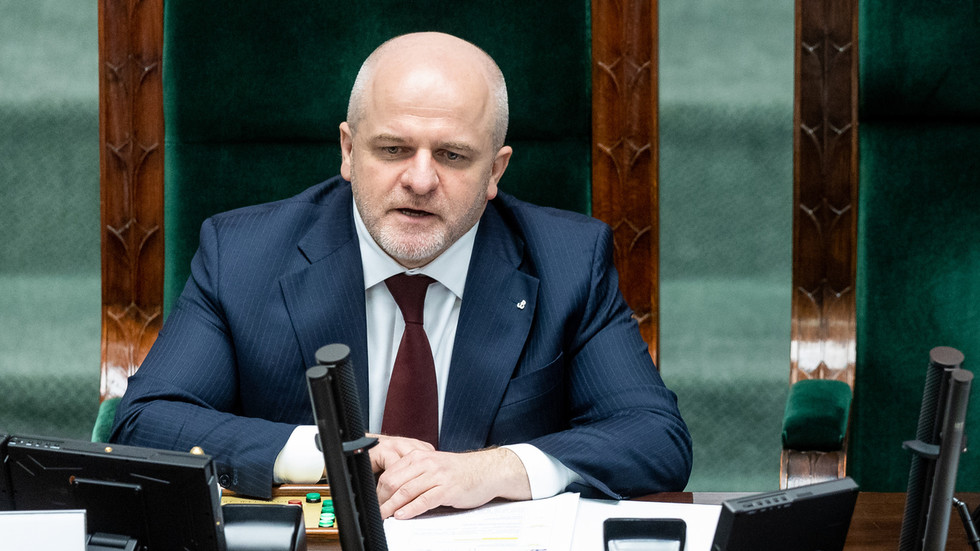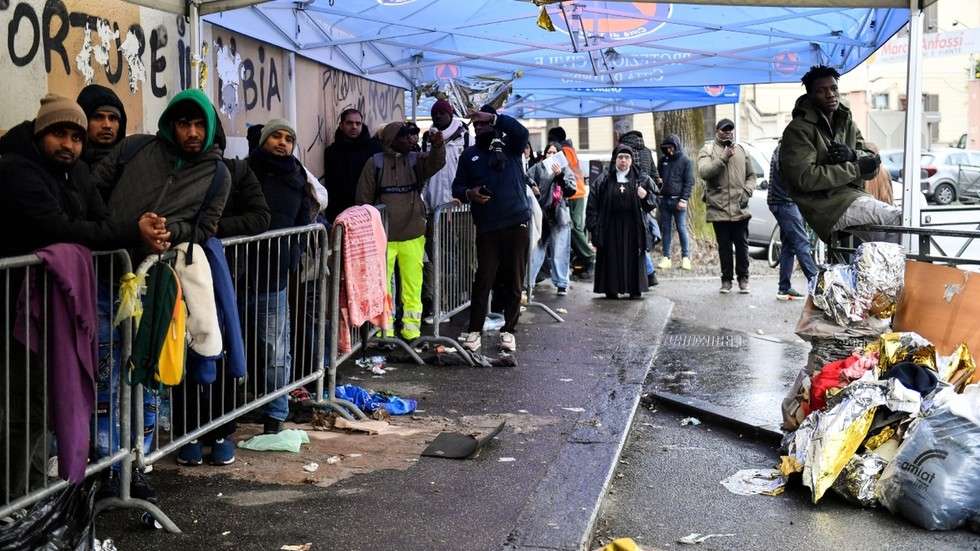Russia, Egypt and the UAE are just three of several countries with a lot to attain from the outcome of one of the world's worst still-running conflicts.
The catastrophic conflict that has engulfed Sudan received strikingly little global attention last year — but there are signs that may be changing.
On 7 January, the outgoing Biden administration formally accused the paramilitary Rapid Support Forces (RSF) of genocide; soon after, the rival Sudanese Armed Forces (SAF) took back the capital Khartoum and the bulk of Gezirah, a strategically important state to the city’s south.
Last Thursday, Washington announced more sanctions, this time targeting SAF leader General Abdel Fattah al-Burhan, whose forces stand accused of “indiscriminate bombing of civilian infrastructure, attacks on schools, markets, and hospitals, and extrajudicial executions” — as well as using chemical weapons, which is illegal under international law.
Yet, many of those watching the conflict closely still see the tide turning in the SAF’s favour.
“I think it's very possible that this is a turning point, at least for SAF,” Sudanese political analyst Kholood Khair pointed out. Khair has advised the UN and runs Confluence Advisory, which she describes as a “think-and-do-tank”. She was based in Khartoum until war broke out in April 2023.
Speaking to Euronews from Princeton University, she explained that while the SAF had been on the back foot for well over a year, recent developments have significantly “rejuvenated” it and weakened the RSF.
Shaza Elmahdi, an activist long involved in the Sudanese pro-democracy movement, echoed her words.
“I would say eventually RSF’s resources will be depleted. They will not get a lot of support,” she told Euronews. “I don't see any future for them in terms of ruling the country. I do see some future for SAF to get back to power”.
The road to war
In 2019, Sudan’s longtime dictator Omar al-Bashir and his conservative traditionalist National Congress Party were deposed in a military coup after a year of intense protests.
In the turbulent years that followed, Sudan swung between civilian and military rule but was in practice led by the SAF with tentative support from the RSF — which had notoriously helped brutally repress a sit-in protest in June 2019, an incident that saw almost 100 people killed and dozens of women raped.
The new arrangement proved anything but stable. According to Dr Gerrit Kurtz, a research fellow at the German Council on Foreign and Security Relations, cracks quickly emerged between the SAF and RSF, who “had been at loggerheads almost since the RSF was founded” in 2013.
Khair claims these divisions were ignored by the international community.
“A few weeks before the war broke out … I'd been warning diplomats that I spoke to and basically anybody who would listen that war was imminent,” she said, recalling that the Sudanese population “all felt the tension in the city. We saw RSF tanks rolling in across the bridge into Khartoum proper.”
Despite these warnings, many foreign governments were more focused on their own interests than on what was happening on the ground.
“For the Europeans, it was migration, for the Americans, it was Red Sea security,” Khair explained. “At that time, we were seeing all these coups in West Africa and the Sahel …favouring or tilting those countries towards Russia”.
“They completely missed every single sign that led us to war”.
When the RSF conducted a lightning series of attacks against SAF bases and Khartoum airport on 15 April 2023, full-scale civil war broke out — and not just between the two factions.
Gathered under the SAF umbrella are a gaggle of smaller forces around the country, and while the RSF claims the support of militias from the nomadic Arab Janjaweed group, which operates across the Sahel, it still has relatively cohesive leadership.
And besides their local allies, the SAF and RSF both count on important international backers to support and supply them.
Guns and gold
While SAF has long counted on support from Egypt, where many of its officers and leaders were trained, the RSF has maintained a strong relationship with the UAE, whom it has aided in the Saudi-led campaign against Houthi rebels in Yemen.
“While the Saudis focus mainly on the air war — succeeding largely in large hitting civilians — the Emiratis have the more significant ground presence,” Kenneth Roth, a leading US lawyer and former director of Human Rights Watch, explained.
As part of their ground presence, the UAE relied on some 40,000 RSF troops from 2016. By October 2019, 10,000 had been drafted back to Sudan.
Roth said that while the RSF’s military assistance has long been a leading factor in the UAE’s dealings with the paramilitary group, their relationship also has a “purely mercantilist” side.
The UAE is one of the world’s biggest importers of gold and has established a lucrative trade worth tens of billions of dollars a year in precious metal from RSF-controlled areas of Sudan. It provides the group with both arms and cash in return. And the Emiratis are not the only external actors participating in a Sudanese gold rush.
“The Egyptians, since the war began, have been announcing that their gold deposits are higher than ever,” Khair said. “Egypt doesn't have that much gold. Quite clearly, they're getting them their gold from SAF.”
Numerous media reports have pointed to a thriving gold smuggling trade across the border from northern Sudan into Egypt, indicating that Egyptian border patrols may be deliberately turning a blind eye to the illicit trade.
Egypt has taken the majority of the 3 million Sudanese refugees since the outbreak of war. Its economy has been in freefall since 2022, since when the Egyptian pound has slid from 17 to around 50 against the euro, but Khair says the government often blames these problems not on domestic policy but on the Sudanese influx.
“You have countries that are now very much sucking at the teat of Sudan's war economy and really have zero incentive to seek a resolution,” concluded Khair.
Location, location, location
It isn’t just gold that has tempted external actors into the conflict. Kurtz, Khair and Elmahdi all pointed to Sudan’s strategic location as a major reason for foreign involvement.
“The growing interest of the Emirates is in the ports,” Elmahdi said. Her diagnosis was echoed by Khair, who suggested the UAE’s interests are not purely economic.
“It's a question of resources,” she explained, “but also undermining their potential political adversaries, and so the UAE looks first and foremost to Saudi. It wants to undermine Saudi's reach.”
“It’s a very Britannic approach to imperialism: a small country having lots of ports in different parts of the world.”
Iran, which is backing the SAF, has also pushed for access to Port Sudan, which the SAF is using as a bargaining chip to gain support from the US, according to Kurtz.
And never far from conflict in the region is Russia, which has ended up backing both the SAF and RSF simultaneously.
“It sees Sudan as not as a whole,” Khair said, “not a unitary country, but one that straddles two geopolitical zones: the Red Sea and the Sahel."
"And it knows that the RSF is integral to its work in the Sahel and that the SAF is integral to its work in the Red Sea. So actually, it sees no contradiction.”
“It also gets a heck of a lot of gold from both of them,” she pointed out.
However, Khair and Kurtz strongly pushed back on the idea that the conflict was simply a proxy war, saying that the label distracted from realities on the ground.
“You can, you should talk about external interference and external support. No question about that,” explained Kurtz. “It doesn't mean that it's a proxy war. It's not the main focus of the war. The main focus is on power in Sudan.”
What next?
The conflict looks set to enter a new phase not only because of recent developments on the ground, but because of the changing circumstances of the external backers who have so far been involved.
While both Russia and Iran have shouldered the substantial cost of variously waging and supporting multiple wars — not least Russia’s titanically costly full-scale invasion of Ukraine — they remain determined to maintain their sometimes heavy-handed influence in the Middle East and the Sahel.
But with Bashar al-Assad’s fall from power in Syria, Iran and Russia have lost one of their most important regional allies, and in Moscow's case, its most important Mediterranean naval base. Many analysts surmise that the Kremlin is now looking to countries like Sudan and Libya to bolster its influence.
Russia has already started transferring troops and equipment from Syria to Libya: at least four Russian Il-76 cargo planes are known to have made trips from Moscow or the Belarusian capital Minsk to the Libyan city of Benghazi in the week following al-Assad’s downfall.
Continued peace talks in Yemen, meanwhile, are far from guaranteed to succeed, but progress towards a settlement of some kind could leave the UAE less geopolitically distracted and better resourced to extend its influence in Sudan.
On the ground
Within Sudan, although Khair contended that the US allegation of genocide came “far, far, far too late in the Biden administration”, there is a general consensus that it remains a significant milestone in the war.
“I think the accusation is 100% accurate. I'm glad he called it what it is,” agrees Roth, comparing it starkly to the “blinkers” he said the Biden administration kept on during Israel’s devastating campaign in Gaza.
“Trump can't undo the (declaration of a) genocide,” Roth told Euronews. “Even if he were to say ‘my State Department doesn't agree’, the damage is done.”
Others worry that accusing the RSF of genocide ignores actions by all belligerents that a UN report said credibly amount to major war crimes on all sides. Some argue that it could even prolong the war.
“There's a distinct possibility that also this genocide determination may contribute to a more partial stance in the war on Sudan,” Kurtz said, “that would make it more difficult to end the war because it would push to a kind of greater level of militarisation.”
Khair brought it back to the human cost. “People expect SAF and the RSF to get sanctioned for very different things that all amount to the same thing, which is killing a lot of civilians,” she said.
“It’s becoming a war of attrition.”

 2 months ago
28
2 months ago
28






 We deliver critical software at unparalleled value and speed to help your business thrive
We deliver critical software at unparalleled value and speed to help your business thrive






 English (US) ·
English (US) ·